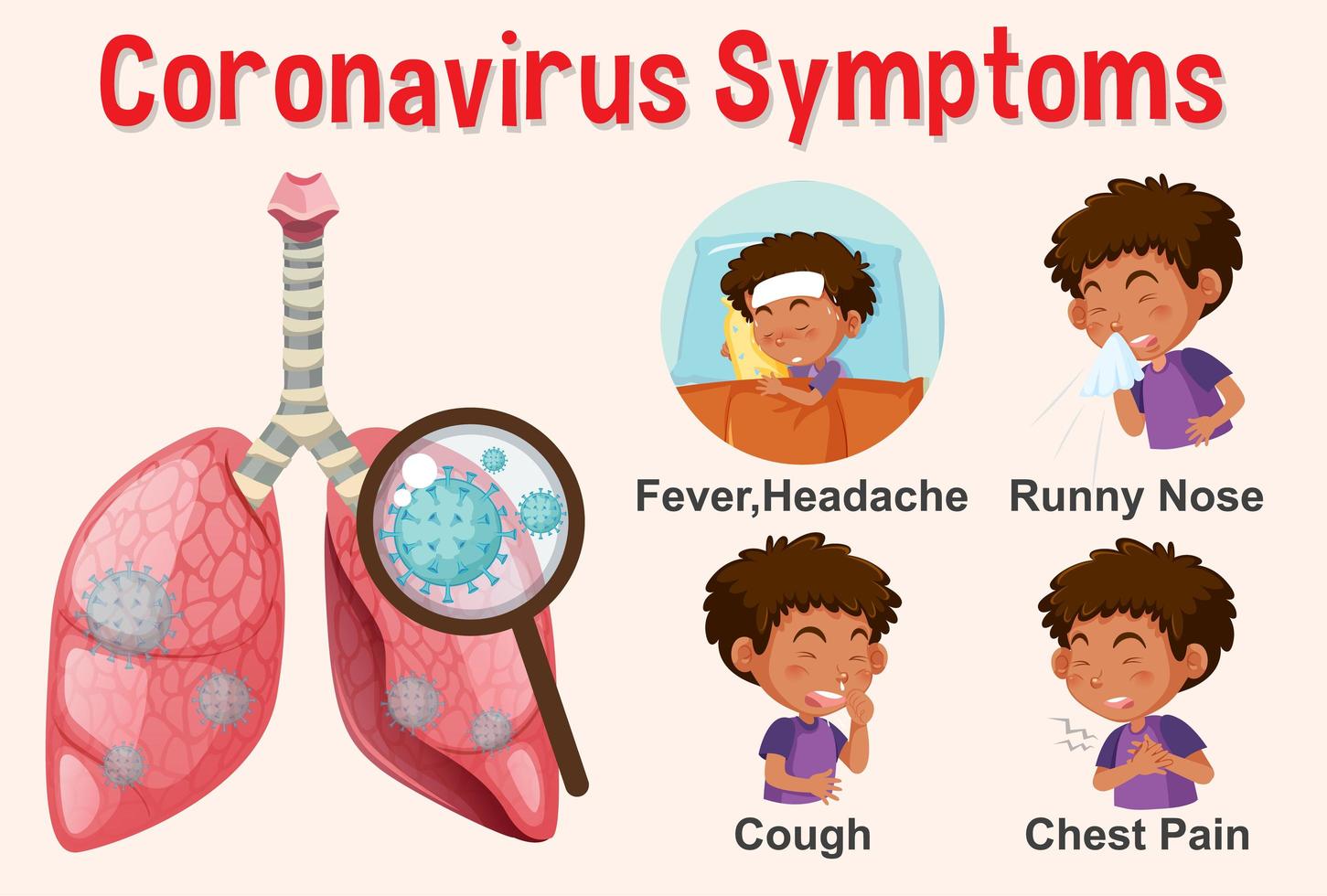
If your child has mild symptoms such as a runny nose, sore throat or mild cough, and they feel well enough, they can go to school or childcare. You can go back to your normal activities when you feel better or do not have a high temperature.
#Corona virus symptoms in kids full
Most people feel better within a few days or weeks of their first COVID-19 symptoms and make a full recovery within 12 weeks. The symptoms are very similar to symptoms of other illnesses, such as colds and flu. a loss or change to your sense of smell or taste.The primary symptoms to be on the lookout for include: Fever or chills. a new, continuous cough – this means coughing a lot for more than an hour, or 3 or more coughing episodes in 24 hours COVID-19 symptoms in children are very similar to those in adults, says Dr.a high temperature or shivering (chills) – a high temperature means you feel hot to touch on your chest or back (you do not need to measure your temperature).COVID-19 vaccines for kids: What you need to know.COVID-19 vaccine: Should I reschedule my mammogram?.COVID-19 drugs: Are there any that work? Symptoms of COVID-19 loss or changed sense of taste or smell blocked nose conjunctivitis (red or pink eye) sore throat headache muscle or joint pain (.MMWR Morbidity and Mortality Weekly Report. Post-COVID conditions among adult COVID-19 survivors aged 18-64 and ≥ 65 years - United States, March 2020 - November 2021. Patient tips: Healthcare provider appointments for post-COVID conditions.Centers for Disease Control and Prevention. Multisystem inflammatory syndrome (MIS).Coronavirus disease 2019 and cardiovascular complications: Focused clinical review. COVID-19: Evaluation and management of adults following acute viral illness. The virus is spread by coughing, sneezing, singing.

Centers for Disease Control and Prevention. The disease can cause respiratory symptoms and fever, and in severe cases it leads to breathing problems.

Digestive symptoms, including diarrhea and stomach pain Flu -like symptoms: Around 73 of children with COVID-19 had a fever, cough, or shortness of breath.

Heart symptoms or conditions, including chest pain and fast or pounding heartbeat.Neurological symptoms or mental health conditions, including difficulty thinking or concentrating, headache, sleep problems, dizziness when you stand, pins-and-needles feeling, loss of smell or taste, and depression or anxiety.


 0 kommentar(er)
0 kommentar(er)
